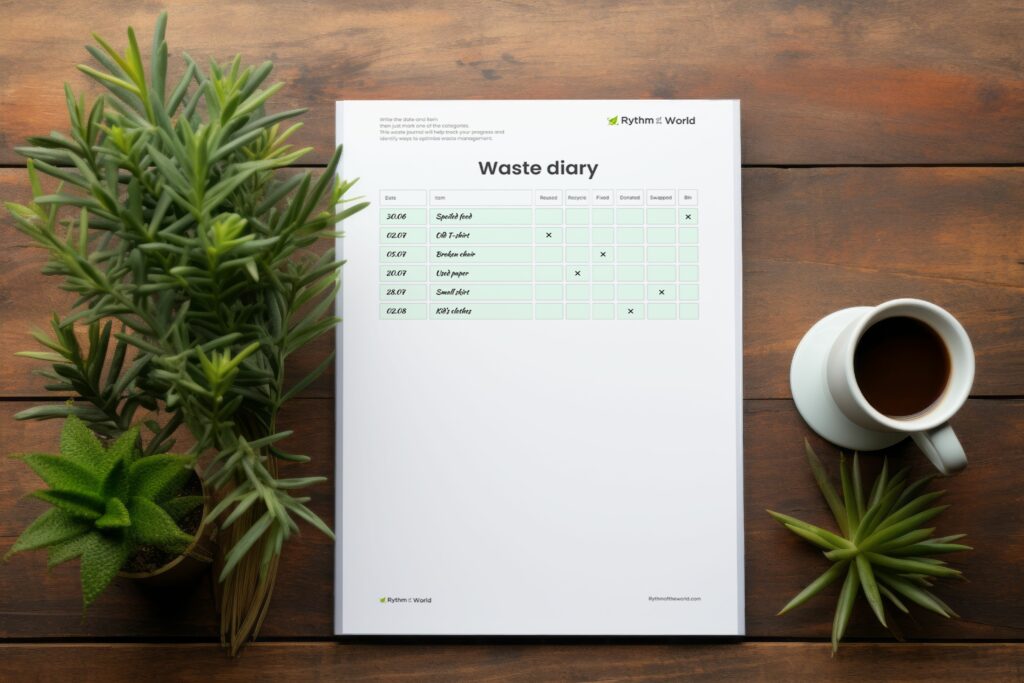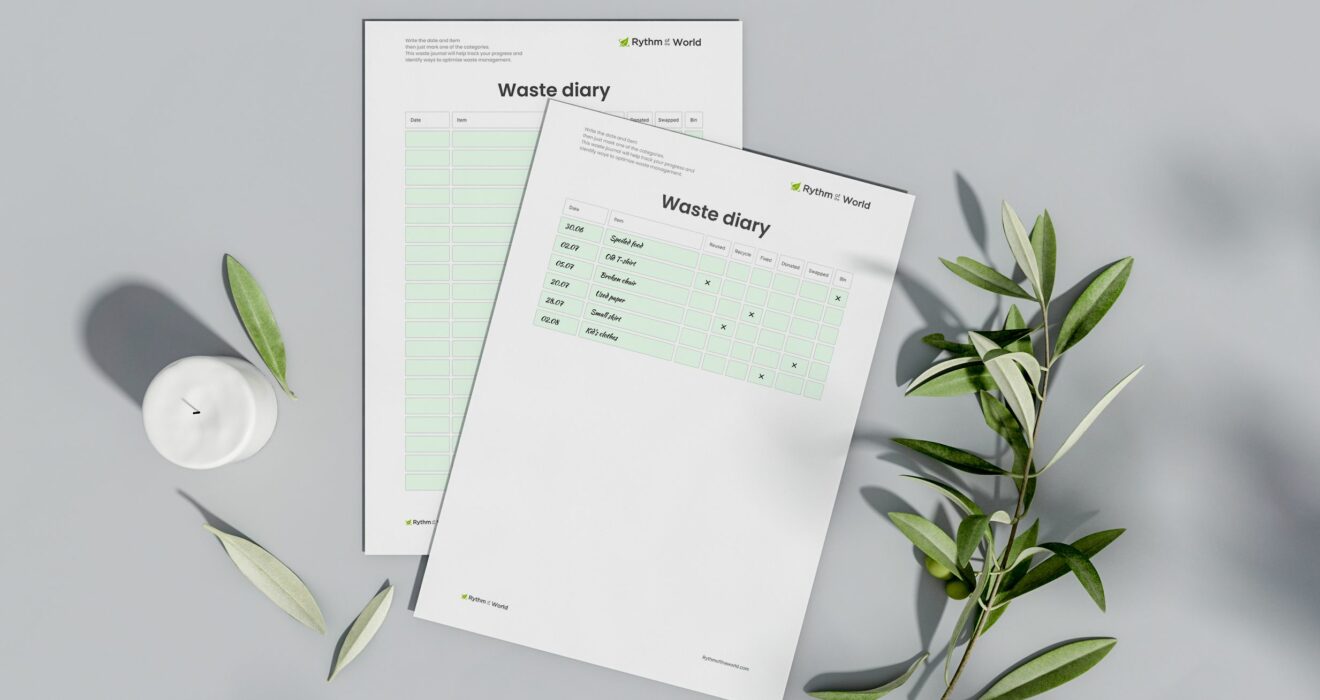What does it mean to live a zero-waste life? Is this phenomenon worth paying attention to? Let’s find out.
The Zero Waste International Alliance (ZWIA) says this eco approach conserves resources through responsible production, consumption, reuse, and recovery of products, packaging, and materials. It avoids combustion and prevents releases into land, water, or air that could harm the environment or human health.
Reducing waste is the best way to protect the environment. Essentially, it means reusing items as much as possible. Those who adopt a zero-waste lifestyle avoid overusing common products, significantly reducing their trash and caring for the environment. It’s also crucial to remember the issue of exploiting non-renewable natural resources.
This article guides you through a 7-day zero-waste challenge, offering step-by-step insights into mindful consumption and waste recycling. You’ll find analytical sections, basic research, and beginner tips for adopting a zero-waste lifestyle. (Zero habit tracker and waste diary attached below). While achieving zero waste takes time and effort, let’s commit to trying it for just one week.
Understanding the concept of zero-waste living
Sustainable way of life is the philosophy behind this principle is to rethink. It is suggested to refuse to acquire unnecessary things.
There is the basic 5 “R’s” rule of eco-friendly behavior helps to manage life for beginners:
- refuse (This principle encourages rethinking how much we consume);
- reduce (Minimize the handling of daily necessities);
- reuse(Certain items can be fixed or restored to prolong the life of your household goods);
- recycle(recycle what isn’t possible to throw away, refuse, reduce or reuse);
- rot(Composting residue is the best fertilizer for the soil – it should be separated and returned to the soil).
By avoiding unnecessary accumulation, you enhance both ecosystem health and personal well-being. This approach fosters new eco-friendly habits, enriches emotions and relationships, and supports self-growth. Additionally, zero-waste practices offer economic advantages, such as reducing food waste, engaging in community initiatives, and boosting local economies through job creation.

A Step-by-Step Guide to an Eco-Friendly Lifestyle
In recent years, zero-waste living has become increasingly popular among those aiming to lessen their environmental footprint. Ready to embark on a zero-waste journey? Here are some steps to guide you.
Day 1: Create a Waste Diary and New Habits
Remember, protecting nature starts with individual actions. If everyone reduces pollution, our world will be cleaner. To help track your progress, maintain a waste diary where you check your daily disposal habits. This will help you monitor waste and ensure you’re following the REDUCE, REUSE, RECYCLE principles. Use our example and adjust it to suit your needs in the future.
Gradually, through analysis, think about your lifestyle and create a list of habits that will help you track your progress. This will help identify patterns and areas for improvement. This type of tracker will not only be useful for one week but will also help you commit to zero waste from now on.
Day 2: Get Rid of Single-Use Plastics
Next, make the shift from disposable items to reusable alternatives. Start by using a reusable shopping tote instead of plastic or paper bags, which helps cut down on single-use waste. Choose a refillable flask for your beverages rather than relying on single-use plastic bottles or disposable cups. Swap out disposable napkins for washable cloth tissues to reduce paper waste. These simple changes not only help the environment but also encourage more sustainable habits in your daily life.
Day 3: Plan Your Meals
Organizing your weekly meals and following a grocery list can greatly reduce food waste, optimize your free time, and save money by avoiding spur-of-the-moment buys. When making new purchases, prioritize biodegradable and eco-friendly options to support sustainability. Specialty stores often have these green products, making it easier to shop responsibly.
Day 4: Rethink Personal Care
Sustainable personal care and beauty is increasingly popular as it aligns with eco-conscious values and responsible practices in the cosmetics industry. This trend prioritizes the use of natural and organic ingredients, minimalist packaging, and ethical sourcing. It also emphasizes ecological and social responsibility, ensuring that every aspect of the product—from production to disposal—has a minimal environmental impact. To fully embrace this approach, opt for the sustained release option when purchasing to avoid running out of products unexpectedly. This allows you the time needed to find, process, and receive your order, ensuring a seamless and eco-friendly experience.
Day 5: Analyze Your Wardrobe
Addressing the environmental effects of fast fashion and landfill overflow with a capsule wardrobe. This approach features 6-12 high-quality, versatile pieces that can be mixed and matched to create a variety of outfits. The key to a capsule wardrobe is its simplicity: it emphasizes a limited selection of color-coordinated, seasonally relevant items. Refresh your wardrobe by donating or recycling pieces that don’t fit this streamlined collection or that you no longer wear, retaining only those that match your lifestyle and needs.
Day 6: Find Inspiration
Fast fashion aims for high turnover with constant releases of cheap, trendy collections. For a more sustainable approach, begin by curating a capsule wardrobe that prioritizes quality over quantity. Stay informed by following eco-conscious bloggers for advice and reviews, and support local, sustainability-focused businesses. Join zero-waste communities and attend their events to deepen your understanding and commitment to eco-friendly practices.
Websites dedicated to these topics provide valuable information on the impact of waste, global initiatives, and practical steps you can take.
Day 7: Reflect and Plan
Tracking your habits is a great way to stay motivated and accountable while working toward your goals. Adopting a zero-waste lifestyle not only supports environmental conservation but also streamlines your daily routine. Why not give it a go? By the end of your first week, you’ll be celebrating your achievements and completing the challenge.




